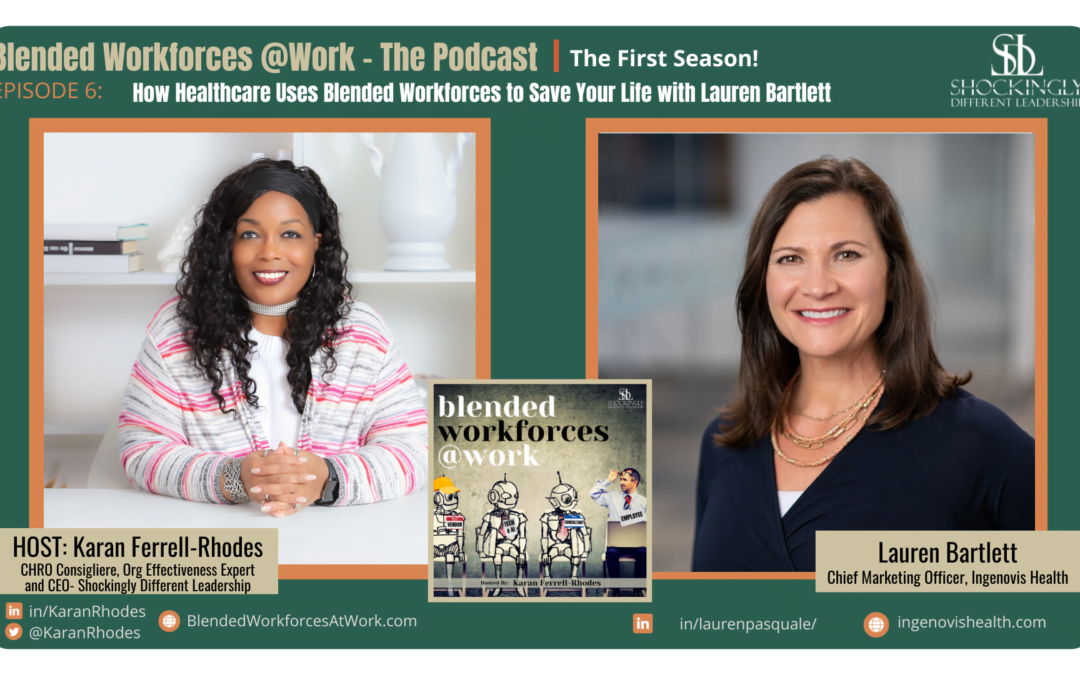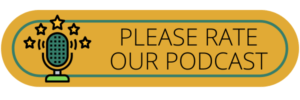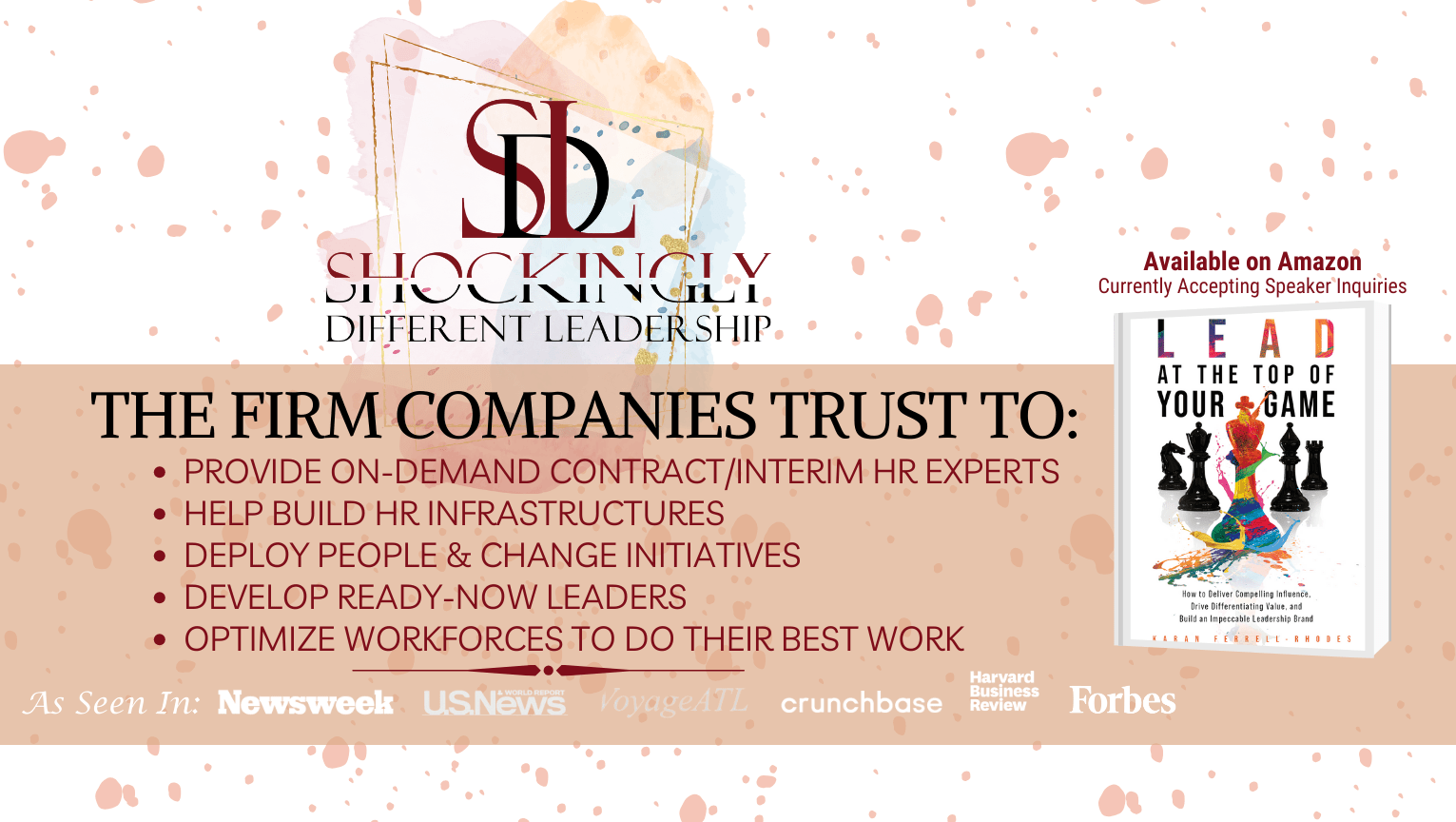IN THIS EPISODE, KARAN FERRELL-RHODES INTERVIEWS LAUREN BARTLETT.
In this fascinating episode, we unravel the concept of blended workforces and define the critical role of trust in vendor selection. Our discussion ventures into the depths of effective talent acquisition strategies as we navigate the maze of data-driven decision-making and harness the transformative power of metrics to steer organizational practices toward success.
Lauren Bartlett is the Chief Marketing Officer at Ingenovis Health, a company that leads brand strategy and marketing for a family of renowned healthcare staffing brands. Ranked among the Top 5 U.S. healthcare staffing firms, Ingenovis Health is committed to nurturing healthcare talent. Laruen’s visionary leadership has propelled Ingenovis Health to the forefront of the industry, with innovative initiatives like the Ingenovis Health ACT program empowering healthcare professionals.
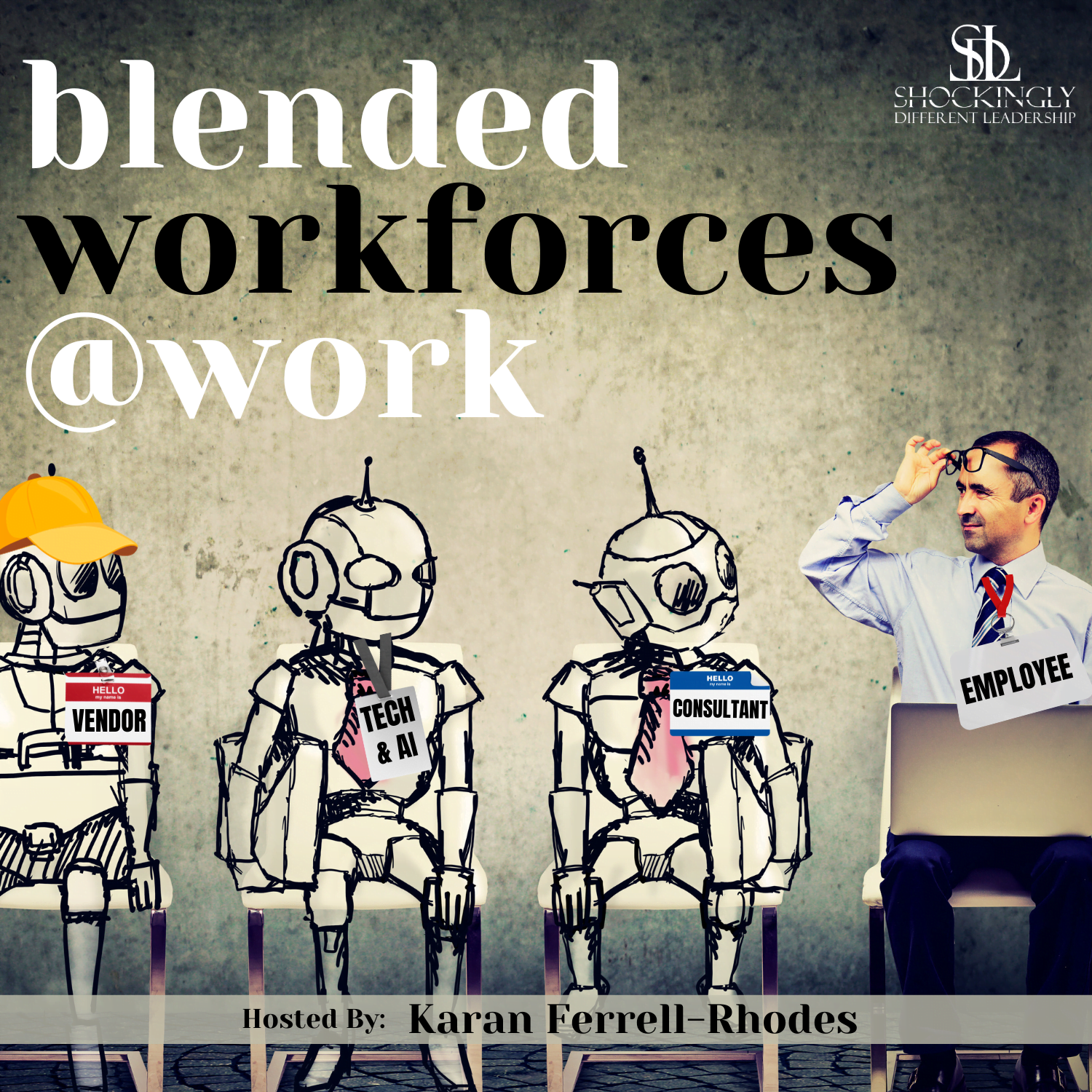
Posted by
SDL Media Team
Rather view our video podcast?

WHAT TO LISTEN FOR:
- What is a blended workforce and how does it relate to talent acquisition and healthcare staffing?
- How is AI influencing trends in healthcare staffing and the availability of talent pools?
- What steps are involved in preparing and placing medical talent within blended workforces?
- How do leaders go about selecting and managing external talent pools for marketing efforts within the healthcare industry?
- What strategies are employed for branding and retaining talent within the healthcare sector?
“[Being a travel nurse or healthcare provider] is definitely a “different” kind of employment.”
FEATURED TIMESTAMPS:
[04:06] Unveiling Ingenuous Health
[09:34] AI in Healthcare: Transforming Diagnosis and Talent Matching
[14:16] Preparing Healthcare Talent
[17:01] Leveraging External Talent for Marketing Success
[19:52] Integrating External Talent into Your Team
[21:46] Strategic Vendor Selection
[23:35] Signature Segment: Lauren’s entry into the LATTOYG Playbook: Crafting a Purpose-Driven Brand
[30:13] Signature Segment: Lauren’s LATTOYG Tactics of Choice: Leading with Courageous Agility
[34:13] Connecting with Ingenuous Health

ABOUT LAUREN BARTLETT:
Lauren Pasquale Bartlett is the Chief Marketing Officer for Ingenovis Health and its esteemed family of brands, which includes trusted names such as Trustaff, Fastaff, HealthCare Support, U.S. Nursing, VISTA Staffing Solutions, Springboard Healthcare, and CardioSolution. Within the Executive Leadership Team, she holds a pivotal role, in directing brand strategy, marketing initiatives, and communications endeavors.
Under Lauren’s guidance, Ingenovis Health has soared to prominence, securing its position among the Top 5 Largest U.S. Healthcare Staffing Firms according to Staffing Industry Analysts (SIA). Her visionary leadership has been instrumental in shaping the company’s identity in a fiercely competitive landscape. Notably, she spearheaded the creation of the groundbreaking Ingenovis Health ACT program, a revolutionary suite of resources tailored to empower healthcare professionals to flourish and progress in their careers.
Lauren’s impact extends beyond strategic planning; she has redefined the company’s digital marketing landscape, orchestrating campaigns that have yielded unparalleled growth in candidate acquisition and engagement, delivering substantial returns on investment. Recognized as a paragon of excellence, her marketing and communications team consistently sets industry benchmarks.
LINKS FOR LAUREN:
Website: ingenovishealth.com/
LinkedIn: linkedin.com/in/laurenpasquale/
ADDITIONAL RESOURCES FOR YOU:


Episode Sponsor
SDL is the go-to firm companies trust when needing to:
- supplement their in-house HR teams with contract or interim HR experts
- implement leadership development programs that demonstrate an immediate ROI and impact on the business

Episode 6 | How Healthcare Uses Blended Workforces to Save Your Life with Lauren Bartlett
Lauren Bartlett 00:00
When you talk about practical application of AI I think most people are aware now that that you might go into a doctor’s office and they might be recording everything you say and everything they say and AI is, has the ability to summarize what happened and maybe put together some sort of action plan.
Karan Rhodes 00:01
Blending workforces are one of the hottest talent strategies today, where employers are using a mix of traditional employees with external resources like independent contractors, coaches, consultants, vendors, and technology solutions, all in order to enhance competitiveness, ensure cost flexibility, and expedite business goals. But how are the successful companies infusing blended workforces into their business strategy? And what are the critical success factors and pitfalls to avoid during implementation? And on the flip side, what does it really take for suppliers to improve their chances of finding and landing contract opportunities? The devil is in the details, my friends! I’m your host, Karan Ferrell Rhodes, and it’s time to get smarter about Blended Workforces at Work! Well, welcome to today’s show, everyone we are absolutely thrilled to have on today’s show was Lauren Pasquale Bartlett, hopefully I’ve said her name correctly, but she is the Chief Marketing Officer of Ingenovis Health, which is a family of companies that source that it’s in the best healthcare talent to every corner of the US. Where hospitals and patients need their assistance was so interesting about Ingenovis is that they are absolutely transforming the industry by helping healthcare professionals from all different types of disciplines, further their careers and find work where they’re most needed. And the exemplary leader who is responsible for the acquisition and engagement strategies, as well as the digital customer experience and the brand out in the market. As a category leader of one I love how they say that is Miss Lauren, and we’re so fortunate to have her on the podcast today. So welcome Lauren to the podcast.
Lauren Bartlett 01:59
Thank you, Karan. Thanks for having me. I love listening to the podcast. So I’m so happy to be a guest today.
Karan Rhodes 02:05
Oh, thank you so much. That is so kind. Well, we have a lot to talk about as Lauren so but before we do that, we’d love to get a sneak peek about you on a personal level. So for as much as you feel comfortable when you share a tidbit or two with myself and the audience. Of course
Lauren Bartlett 02:25
I’d love to. So as you say, I’m Lauren Pasquale Bartlett, I am a New Yorker originally came from Italian parents from Brooklyn. But I now live in Vail, Colorado, and I’ve been in Colorado about 20 years. My husband and I live up here on the top of a very snowy mountain and we’re raising my little daughter, and I just love it. We love outdoor sports we love the summer times here. Probably like you, Karan, I’m on planes a lot for work. And when I do go into an office, I go into our Denver based office.
Karan Rhodes 02:57
Oh, so Well, you know, when you said Vail that just lit my heart because I used to cover that territory when I worked at Microsoft and we had a blast during the wintertime. Beautiful, absolutely gorgeous. And I’m sure the weather might be a little bit different than it is in Atlanta right now. I don’t know it’s about what is it? 75 degrees here. How about there?
Lauren Bartlett 03:24
Well, we had 12 inches of snow yesterday.
Karan Rhodes 03:28
You can keep that because if you say the word snow in Atlanta, we all stop and pray, so… But it is I’m sure very, very beautiful. Well, thanks so much for sharing and let’s get started by sharing a little bit more with us about the company and what you all are currently tackling right now.
Lauren Bartlett 03:50
So as you say Ingenovis Health is a family of brands, we are in the healthcare contingent staffing space. So we were founded in March of 2021. When for healthcare staffing providers came together, they were industry leaders in certain segments and contingent staffing. And since that acquisition of those four companies we’ve acquired for more so the family of brands is eight companies under the ingenuous health banner. And we are unique in that we have a clinician focused purpose to build a home for healthcare talent. And what we do primarily is placed travel nurses and allied technicians and doctors and other health care professionals in temporary positions around the country, usually in urgent and critical situations. Karan so it’s often just hey, you know, we’re in Atlanta, and it’s baby boom season in July, so we’re going to need some more labor and delivery nurses for the next three months. Or it could be something like a hurricane hitting in Houston or you know, a COVID outbreak. We staffed Ebola in 2016. So you just don’t know what’s coming in the community and enjoy Anibus health has a variety of sectors of healthcare talent that we can send in any situation across the country.
Karan Rhodes 05:06
That’s amazing. And I was sharing with you a little bit earlier that I have, my best friend in the world is a travel nurse as well. And she’s doing that almost her entire life. And I’m curious for Ingenovis do you all also assist with their housing and placement? Or give them instructions? Do you do that logistics piece as well? Or do you just get them, you know, booked and committed, and then they kind of work out getting to where they need to get to,
Lauren Bartlett 05:36
we do both. So our commitment is to the provider for sure. So people like your friend, once we’ve identified them and found the opportunity, and they’ve committed, we will take care of them literally up until the moment they walk into the hospital. Now what we found this is so interesting over the last 10 years with with platforms like Airbnb, some of these folks just want to take a daily housing stipend and go do it on their own. But if not, yes, of course, we cover their travel, put them in a hotel, we also offer benefits, which they can opt in and out of for the lifetime of the assignment that they’re on. Your friend is a is a fierce warrior is how I would describe the tribal nurses because, you know, they’re often going into situations where maybe the patient ratio is out of balance, maybe it’s an outbreak, like I said something happening in the community that is causing a lot of stress and strain. So they go in there to help provide support. Often the staff nurses have been working a lot of overtime, and they’re under a lot of pressure. So to travel nurses are a bit like special forces of nursing. And we’re just so proud of them and so impressed by them.
Karan Rhodes 06:42
Oh, that sounds amazing. And in your role as chief marketing officer with so many I’ll say a plethora of smaller companies that have come together under your umbrella. Is it challenging to have a unified message around all of those different healthcare specialties that you are in? Or not? Or is it kind of easy because you just have it under the umbrellas, we support health care, no matter what the discipline
Lauren Bartlett 07:12
Well, the thing that makes it easier is that the acquisitive strategy, the companies that we that we target to acquire really have a commonality, they’re always the best in their field or among the best in their field. So for example, we have a company called fast staff that was placing those nurses in 24 to 48 hours during COVID. And we have another kind that’s one of the best in the field, we have another company called USN, US nursing that places nurses in strike situations. So when unionized nurses go out on strike will send in an entire team to replace them and care for the patients while the union settles their their bargaining. So because each of the companies is usually at the very top of their game, we have that ability to market in Genesis is one of the industry leaders. And because we are committed in our purpose statement to build a home for health care talent, to provide for the well being and the career advancement of any provider, a doctor, an allied technician, a certified nurse, Assistant, a pharmacist, you name it, we have that in common as well. So well, they’re certainly different in their certifications and their career path and what they’ve done to get where they are. There is, as you say, an umbrella of commonality among all of the services that we provide to clients.
Karan Rhodes 08:27
That sounds amazing. Absolutely amazing. Now, I’m assuming and this might be a big assumption that, you know, one of the hot topics right now is all about how AI is going to impact the labor force. Because this industry is largely people dependent. I don’t think a while there are some aspects of AI medical, I do acknowledge that, but I think there are going to be needs for the best of the best health healthcare professionals around. I’m curious. So number one, if there are from your perspective, any trends regarding AI of how it’s going to impact healthcare that you’re seeing, and if not, what are some trends in the healthcare talent pool industry that you see both now and and may be evolving in the future?
Lauren Bartlett 09:18
I’m so glad you asked. Because when I listen to experts talk about this. I just think the opportunities in healthcare using AI it’s just fascinating. One of the things that stood out to me is what the Mayo Clinic has been doing trying to make all of certain amounts let me not speak for them but certain amounts of data available worldwide, where they can partner with other healthcare systems and look for patterns and diagnoses and symptoms and try to diagnose you know, elements earlier I find that really interesting, really fascinating. I hope it will change you know, change our world for the better. When you talk about practical application of AI I think most people are aware now that that you might go into a doctor’s office and they might be recording everything you say and everything they say and AI is, has the ability to summarize what happened and maybe put together some sort of action plan. I think a lot of that is already happening. When you want to talk about our space, specifically in staffing, there’s a great opportunity for us to use AI to summarize job descriptions, summarize conversations with candidate use job matching algorithms to say, this candidate Joe Smith has all of these qualifications and this client in Georgia has all of these needs. So let’s put them together. So the matching and staffing and the ability to work through credentialing can really move things faster and make all staffing companies more efficient. Ours included.
Karan Rhodes 10:49
I can see that I can definitely see that because you’re right. And as it relates to summarizing and matching candidate candidates, yes, skill sets to candidates, it can be absolutely amazing, be amazing and save a ton of time. But I do. And maybe I’m a little bit old school, but I did think I was the final look at the finalists, the choices or the finalists, that candidates always get us a human touch or look, maybe I’m wrong. But
Lauren Bartlett 11:23
I’m glad you said that because even as I talked about ways that you could use these these really great expedience in matching, you know, you do still need the human element. And in all of the years that we’ve been conducting research with our candidates and our recruiters, the candidates will frequently talk about their relationship with the recruiter, the trust that they have, this person really knows me they find me the right opportunity for me at my stage of my career. So you’re absolutely right. I think people have said it can accelerate it, but it never replaces the human touch.
Karan Rhodes 11:56
What’s also very special about your background, Lauren, is that you’ve had your toe in the water on both sides of the blended workforces talent strategy, if you will, both, you know, as an employer, who employs external talent, pools and uses technology, as well as you being a vendor, as a company to other clients, such as your hospitals, or wherever your talent is needed. So let’s start with the company itself as much as you you’re no, because I know you’re not in the day to day as much as placement, how do you know or have insights on how you prepare or what you look for in your medical talent? Once they’re part of the pool? And where I’m going with this? Is there a lot of folks who are willing to be like independent contractors or consultants or what have you. Well, Lauren, I have another question for you. Because I know you dip your toes on both sides of the blended workforces? Strategy, if you will, but I’d first like to start for as much as you know and aware of from the company’s perspective, when you all are recruiting nurses or healthcare professionals are there because usually people are really good in their areas of specialty, but may not know all they need to do to prepare to be a contract employee. Do you find that most of those healthcare professionals kind of know the lay of the land, or you and your team find that you’re having to, especially for new ones in the market, having to educate them a bit on, you know, what a 1099 is all about, or of how to, you know, onboard into a new hospital setting, or deal with challenges that are currently going on in medical facilities? I’m just curious about how you prep, the talent that you place at your client?
Lauren Bartlett 14:00
You’re absolutely right. So some travelers like your friend had been traveling pretty much since they came out of nursing school, and they know what it’s all about. And they will often counsel the younger ones, or the ones who are considering it maybe for the first time and tell them what it’s all about, because it’s absolutely a different kind of employment. And they really need to understand what they’re getting into what we’ve found, Karan is that if you can believe this, the thing that shifted the amount of travelers more than anything was COVID. And the reason why was because as COVID started spreading across the country, if you remember first it hit in Northern California then it was in New York, and those hospitals started closing non essential services and they were just maintaining the ICU and the ER and the other essential critical units, but a lot of those nurses were furloughed and they had talent in the bear and they didn’t want to be sent home and waited out. And so they started applying for travel jobs because as mentioned, you know, COVID just started, treat you know, going all over the car Train popping up in different communities, then it was Chicago, then it was New Orleans. And the physicians were critical. People were needed right away to come in and deal with these escalating patient admission rates. But also, if you had been serving in a unit in California, and you understood how to treat patients who have COVID, you are of use to New York who’s never seen it before, because there were new methods and techniques that the healthcare providers had to use with their patients. So we really saw a lot of mobility due to COVID. Not only because those those full time positions, were being furloughed, but also because people were, you know, really wanted to go where they were needed. They were also getting offered really high pay rates during that time. Because to go into another community where you don’t know anyone you don’t know that facility, and you’re going into a contagion that no one knew that much about, like when you come home, do you have to take your clothes off in the garage before you greet your family and assignments. And for those health care providers to run into the fire. They were paid handsomely, and should be paid handsomely and probably could have even been paid more. We’re so grateful for what they did. So that really moved a lot of people. But to answer your question, yes, we absolutely create education. We do a lot of blogs, and story writing and Q and A’s and info infographics, what do I need to know about traveling? How do I submit my taxes? We get a lot of those kinds of questions.
Karan Rhodes 16:27
Oh, fantastic. And then on the other side of the table with your team in marketing, I understand you use some contractors and vendors to help in the work that you all do. Can you share an example of how you do leverage external talent pools to help you all get your work done?
Lauren Bartlett 16:45
Yes, we do. So we’re again, you know, I lead the marketing. So marketing has some subject matter expert subjects where you can have someone who’s an expert in digital marketing, you can have someone who’s an expert in graphic design, someone who really understands engaging social media communities. And as, as in Javis, health grew through acquisitions, I was very fortunate to inherit in really good strong marketing teams from each of the companies. But in some cases, you know, it was a smaller company, it might only be a handful of people. And we’ve had to augment with outside contractors. So we have a digital marketing contractor that we’ve used for many years and have started we call it shared services, you know, when you use one vendor across the different brands, so we’ve started consolidating some of the vendors that the other brands used, and put them under the the vendor that we thought was the most strategic and was showing the most, most signs of success in the in the past and likely in the future. We have a marketing and branding and research agency that we’ve used for many years, and we have a lot of history with them. They understand who we were before the merger, they understand who we were after they’re a New York based branding agency that we rely on. And oftentimes, they’re just getting us off the ground, Karan. So with the branding agency, it’s usually spot statements of work, meaning we want to launch this new brand, and we want to create brand foundations and understand what it stands for. And they’ll help us do that work. We do it together, it’s very collaborative. And then we take it internally and share it. Whereas someone like an outsource, design, graphic design group, we’re constantly giving them work, everything from, you know, design, the holiday gift to recruiting banners for a trade show, we have, we have groups that help us with PR and media and building are some of our digital products. So we really rely on them. But we look for groups that we feel are going to be part of our team. So there’s a lot of interaction, you rarely just have one person who interacts with the vendor. It’s usually group meetings, we do check ins, we do status, and it’s a very collaborative process where everybody understands the outcome that we’re envisioning.
Karan Rhodes 19:01
I love that you mentioned that Lauren, because you know, one of the challenges if not handled appropriately, one of the challenges of folding and external talent pools into your team is the whole culture aspect. And making sure that they’re welcome. They’re in alignment, everybody’s on the same page and working towards the same goal. There’s no or very little resentments of the, you know, permanent employees versus the experts that come in to help. That whole dynamic can either make or break a team. Do you agree?
Lauren Bartlett 19:36
Absolutely. And to me, team is the most important thing. As a leader, it’s my responsibility to make sure that we’ve got a good culture, make sure that we’re supporting each other and make sure that we’re bringing out the best in each other. Every one of my leaders down to my junior leaders should be optimizing the talents of their people and creating a safe and happy work environment where, you know, you can trust each other so When you bring in a digital marketing partner who’s doing one of the most important functions of your organization under your direction, you have to trust each other. And you have to be proud of the work that you’re doing together, you have to be in a situation where, when, you know, if you don’t achieve a goal, everybody’s looking very candidly at what happened along the way, how do we course correct? How do we reach our goal the next time so we’re so lucky, Karan, we’ve got such great vendors and contractors and partners that we’ve never had an issue where they’re sort of apathetic contributors. They’re always really passionate about our mission, and they want us to achieve and they take it on, like their mission. And, you know, I don’t know, if you do this with your other guests on the podcast, but after, after you post this, if anyone wanted to call me and ask about some of those vendors, I’d be happy to give reference.
Karan Rhodes 20:49
Oh! that’d be fantastic. We will absolutely have all your information in the show notes. So thank you so much for the offer. Because that was kind of leading to my next question is about how you you personally as a leader of select and choose your vendors, like what kind of criteria? What things? Or what aspects do you look for? Is it mostly via referrals? When you tap on a colleague and say, Hey, do you know somebody who can do X, Y, or Z? Or do you just kind of cast a broad net, and, you know, kind of evaluate a shortlist of individuals, once you you know, put information out there that you’re looking for someone with a certain specialty?
Lauren Bartlett 21:30
we will do both. But I have to say, you know, after you’ve had, you’ve been in your career for 20 or 30 years, I do have a network of referrals that I’ve used before, I know I can trust them, or they’ve worked for our company before and done great work. So we’re primarily referrals, probably 75 80% of the contractors we use, it’s because we’ve used them before or someone on the team use them before. However, we will certainly go to Google and say, you know, we’re looking for this skill set, I don’t know, maybe it’s SEO growth, where we need a company that can really focus on SEO for our website. And maybe you start going through reviews and try to figure out what’s the top of the top and reading their testimonials and that kind of thing. But I think by the time you get to this stage of your career, you’re really comfortable with your network of partners and referrals that you’ve worked with before. One thing I’ll say is important. As we’re vetting potential partners, we will often start with our purpose statement, we’ll also will often start in those discovery meetings, talking about who we are and how we’re clinician focused. And we want to, you know, make a positive change in the healthcare industry. And those who get psyched about it, you can usually tell right away, they’re the ones who are going to be passionate and committed and make your purpose, their purpose. Those are always the best partnerships
Karan Rhodes 22:46
Aren’t they? They are just always the best ones. I didn’t say my age, but I have a, you know, 10 best who I used to start our firm, those that I’ve worked with witness because you know, your name is on the line, and you want to make sure you bring the best of the best record. So I totally get that. I want to give a little airtime for you to share a bit more about your role as Chief Marketing Officer of such a dynamic company. I mean, you have such a broad area of responsibility. And we’d love to hear just a little bit about a day in the life of Lauren.
Lauren Bartlett 23:19
Oh my gosh! Well, it is a broad area of responsibility. You’re right. And it has been such a pleasure. And I’m so lucky, Karan, because, you know, I started as the Vice President of Marketing for the two companies fast F in US nursing that I mentioned. And that was a real growth opportunity for me. But when we merged with the two other companies, I was fortunate I was up leveled to the leading position of marketing for the company at a time where we had to name the company. So in gentleman’s health didn’t even exist, you know, it was like sort of a series of initials that related to a financial entity at the time. So I’ve just been in it in the best possible timing, growth opportunity for me, my three areas of responsibility really come down to brand and we’ll talk about that in a minute. Operations marketing operations, because our performance marketing is critical to us finding those those talented healthcare providers, and we do most of that on digital. And then finally, the third area, we’re really involved as well in employee engagement, partnered with our HR team, because when you bring eight companies together, and they’re in, you know, six or seven distributed offices across the country, boy, are you talking about cultural differences, especially when some of those companies are 20 and 30 years old, you got to really make sure that you’re doing that in a positive way. One of your podcast guests was talking about sometimes things go well in the beginning, and then they don’t go well later. So you think like, everybody’s getting along great. This worked well, but you realize six months in that you just don’t work the same as your new sister, you know, your new brother. So That’s something that I think about as well. So those three areas, the brand, the performance, marketing, and also the corporate culture, the corporate engagement, I think about them a lot. I have many meetings related to those. And I have very talented senior leaders who are responsible for all of those areas.
Karan Rhodes 25:17
That sounds interesting. So go deeper on your brand. You said you you all have a lot of plans are around your branding in the space. So can you share a little bit more about that?
Lauren Bartlett 25:29
Yeah, I’m glad you’re asking about that. Because when I was saying like, it was just such a pleasure. And I had gotten to do this before the three companies I worked for Ingenovis Health where we’re pretty old, storied big sports franchises. So it was never like a merger or name a company, when Ingenovis Health came together, that the four brands came together. Over the course of the next few months, you’re doing integration, you’re trying to figure out what’s the payroll platform, what’s your back, you know, your back office, IT systems, what’s your front offices, so you do all of that integration discovery, and you’re trying to figure out your strategic go forward plan. But at the time, we were in the midst of the worst health worst health care provider shortage in the country, which continues to get worse. So let’s put it this way, the number of nurses coming out of school every year is increasing at 4%. And the number of openings in hospitals, Karan is increasing at 19%. Wow. So as baby boomers are retiring, and you know, there’s a lot of attrition during COVID. Because of all the challenges we talked about, there’s a really significant health care provider shortage, and our CEO, and the board that backs him had the foresight to say, this company is going to do well, we’re going to be successful, we’re going to do all the things that we’re responsible for doing. But we’re also going to have a clinician driven purpose. And again, that purpose is to build a home for healthcare talent. And I was very lucky to be on that small group of executives, putting together that purpose and saying, We want to stand out in the industry, we want to make sure that that doctors and nurses and allied technicians know when they’re working for us, they’re being cared for. And if they hit a day where they’re like, forget it, I’m outta here, we’re there to support them. And we want to keep them in this pool of talent, because it’s so critical. So not just naming the company, but coming up with that purpose. And then the third part of it, which was really a thrill for me, and something I’m very proud of was I got to work on a small group of leaders who established what we call the Act program. And the Act program is the manifestation of the purpose. It stands for advocacy, careers tools. And that means that any clinician working for us has access to a collective of tools and resources that support their well being and their career advancement. And we’ve hired a really established administrative professional in the nursing field, Dr. Robin Geiger to lead that program. And she has launched all kinds of outreach programs to make sure that we’re providing a good work environment for our employees, or our clinicians, as well as our employees.
Karan Rhodes 28:06
Oh! Lauren, can I just say, it sounds like you have an amazing job, let me just say,
Lauren Bartlett 28:13
I’m really lucky. I have to say, you know, I have a great boss. And I think that a lot of people, especially your listeners, will understand the importance of leadership and what that does to galvanize the workforce. And for me, you know, when you have a good boss, you just don’t ever want to leave. So I’m very lucky Thank you
Karan Rhodes 28:34
You are, and I so appreciate the work that Ingenovis is doing. Because it, you know, important to every citizen in this country, you know, in ensuring that our healthcare institutions are, you know, well staffed and ready for when they’re needed. And you all play a big part of that, and that talent supply chain. So I give you all kudos for that.
Lauren Bartlett 29:00
Thank you. That’s what we’re trying to do. Thank you. And great.
Karan Rhodes 29:02
Well, one question. We love to ask our guests Lauren, when they I you know, read a book on leadership execution, some best practices there. And we always love to ask the, I guess, in the leaders that come on to the podcast, which of the tactics that I write about in my book really resonated with them, and you were so kind to share that leading with courageous agility? I’m really pumped for you. And for my audience members out there who may not have read my book yet or are another Tactus leader with courageous agility is all about having the courage and fortitude to do what you think is right and take baby steps forward. Even if the feature is uncertain or unclear, you know, it’s all about having been encouraged to have board movement in hopes that you achieve a goal. So curious minds want to know, Lauren, why did that one resonate with you in particular.
Lauren Bartlett 29:56
That resonates with me because we work in an industry where those fluctuations are constant. And you know, going back to I mentioned 2016, Hurricane Harvey, Hurricane Harvey hit in Houston. And then shortly after Hurricane Irma in Florida, and as you know, just being in that region, the impact is devastating. And one of the things that fast staff our rapid response company had to do, we ended up sending 46 NICU nurses within 24. Most of them were there in either 24 hours or 48 hours, and they couldn’t get to the hospital in Houston. So they literally had to be helicopters, National Guard helicopter to the roof of the hospital, because the roads were. Now when you think about I mean, you mentioned, you know, like, if you’ve got kids and I have a daughter, and those are NICU nurses, neonatal ICU, when a hospital needs 46 of them, and they need them immediately, you cannot be hemming and hawing in front of your staff and saying, Okay, here’s how we’re going to do it, we’re going to place these ads, and we’re going to reach out to them, and we’re going to start doing social media, we’ve got to find them tonight. And you guys sorry, it’s going to be late night, we got to do this, we got to do this, we got to do this. You also don’t know what the heck you’re doing in a situation like that. But you got to bring it and you have to go with your gut. And as you say, I love that you say you think you’re doing the right thing, because that’s all you can do. And, you know, when COVID started spreading across the country in March of 2021, and we sent our workforce home or Denver based workforce went home, we were really flying by the seat of our pants. And every day, you know, as a leader of people, I can’t come to the Zoom meeting and be like, I don’t know, what are we going to do? Like, you just have to be authoritative about it and say, here’s what we’re going to do, because it’s worked for us in the past. And we think it’s going to work for us in the future. And it gives people a lot of confidence. I also have the pleasure that I’ve worked for bosses who have given me opportunities to do things I never knew I could. And that’s how I developed confidence. And when I can do that, for some of the younger people working for me, and even some of the leaders who have more experience in their career, I want them to develop their confidence, I want them to be courageous as well. So that’s why I loved reading that one and thinking of thinking, I want to continue to apply that as best I can.
Karan Rhodes 32:15
You know, Laura, I love that story. Because that’s part of being a leader, right? You have to sometimes take calculated risks, taking in an account all your expertise and knowledge that you have and what you think might be the next best step considering all the options. And just being open and honest with your team and saying, you know, look, this is an emergent situation, we’re trying to do X, Y, and Z. Based on our data and knowledge and historical experiences, this is what we think might be best. And we need your help to make it happen. And by the way, if there are better ways to do things or other ideas you have come whispering to us so that we can, you know, maybe factor them in, I think most teams with, you know, that’d be the rallying call to support their leader, when you do let them know that you may not have all the answers, but you’re doing the best that you can given the situation. I mean, who wouldn’t want to follow a leader like that, right.
Lauren Bartlett 33:19
Thank you, yeah.
Karan Rhodes 33:20
Well me anyway, maybe I’m sharing my point of views there. But if someone else were nice to me, and I was part of the team like that, you know, I’d give 150% to help them make whatever we’re trying to work on happen. Well, Lauren, we’re about out of time. But before I let you go, and listeners, we’re going to have all of Lauren’s information in the show notes and information about the company and some of the resources she mentioned. So you can definitely check it there. But in the meantime, Lauren, if you can just give voice to where the audience members can find you and the company, that would be fantastic as well.
Lauren Bartlett 33:57
Sure, yes, we’re at IngenovisHealth.com. And they can learn more about that, especially if there are people out there thinking about contingent health care opportunities, because as I said, we’re just, you know, in the midst of the shortage, and really looking for this talent, we are so grateful to the doctors, the nurses, the Allied technicians, all of those who work in the affiliated fields around health care, because it’s not always the most, you know, it’s not always the most glamorous job, but we need them and they’re so gritty and tough. So we’re very grateful. Folks can find me on LinkedIn. I’m Lauren Pasquale Bartlett, again CMO of in Genesis health, I’m really grateful to our you talk about the contractors our PR agency that we use is x to PR based in New York. And we partnered with them as soon as COVID started hitting and the amount of media opportunities they have secured for our doctors, our nurses, our executives, our employees to talk about this really good work that we’re doing. We’re just so grateful and I feel like they’ve really given voice To the healthcare talent. So that’s one great contractor that I can recommend. But yeah, I’m open to people reaching out. I love these kinds of podcasts. I think what you’re doing Karan is so great, and I’m so glad to be a part of it. So thank you for having me today.
Karan Rhodes 35:13
Thank you, Nina, thank you so much for the gift of your time and knowledge. I wrote a million notes. And I’m hoping the audience members did did as well. Have you had some fantastic insight. So thank you again, for coming aboard.
Lauren Bartlett 35:26
My pleasure. Thank you, Karan.
Karan Rhodes 35:28
And thank you audience as well for your time. We know there are a million other podcasts that you can listen to, but we’re very honored that you chose to spend time with us. Just remember to please like and subscribe and share the podcast with just one friend so that we all together can get smarter about blended workforces at work. Thanks a ton and see you next week. Well, that’s our show for today. Thank you again for listening to the Blended Workforces at Work podcast. You can check out the show notes, additional episodes, bonus resources, and also submit guest recommendations on our website at blendedworkforces@work.com. You can also follow me on Twitter, LinkedIn, Instagram or YouTube by searching for the name Karan Rhodes with Karan being spelled K a r a n. And if you like the show, the greatest gift you can give would be to subscribe and leave a rating on your favorite podcast platform of choice. This podcast has been a production of Shockingly Different Leadership, a global consultancy which helps organizations execute their people, talent development, and organizational effectiveness initiatives on an on-demand, contract, fractional, or project basis. Huge thanks to the SDL production and editing team for a job well done. Bye for now.

Want to be a Podcast Guest?
Check out our guest qualifications and submit our brief form to be considered.
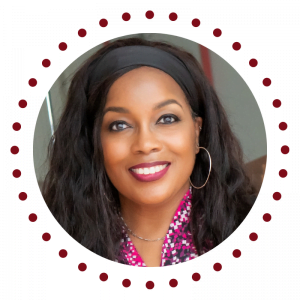
Want Karan to be Your Podcast Guest?
- Blended Workforces & the Gig Economy
- Critical Execution Tactics of High-performing Leaders
- Entrepreneurism & Leading Your Business
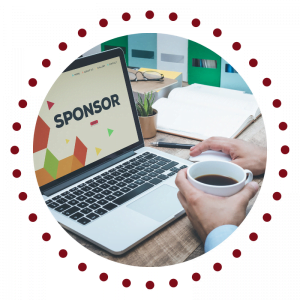
Want to be a Podcast Sponsor?
All sponsorships come with a featured spot on show notes pages.
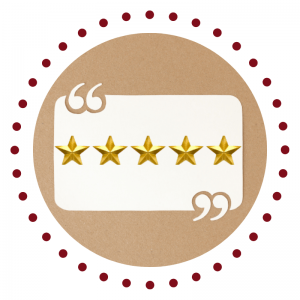
Like the Show? Please Leave a Review
If you like the show, it would mean the world to her if you left a quick review.
Your word is golden, so a HUGE thank you in advance!

#KeepInTouch
via our podcast alerts
Subscribe now to discover why thousands of monthly listeners who are passionate about doing their best work prioritize time each week to listen to the Blended Workforces @Work podcast.
#AboutSDL
#WhereToFindUs
MAILING
4480-H South Cobb Drive
PMB 219
Smyrna, GA 30080
PHYSICAL
2121 NewMarket Parkway
Ste. 108
Marietta, GA 30067
#ContactOptions
Customer Service Email:
service@shockinglydifferent.com
Call or Text:
770-384-1103
#Office Hours
MON-FRI
8:30 AM – 6:30 PM
Weekends By Appointment

